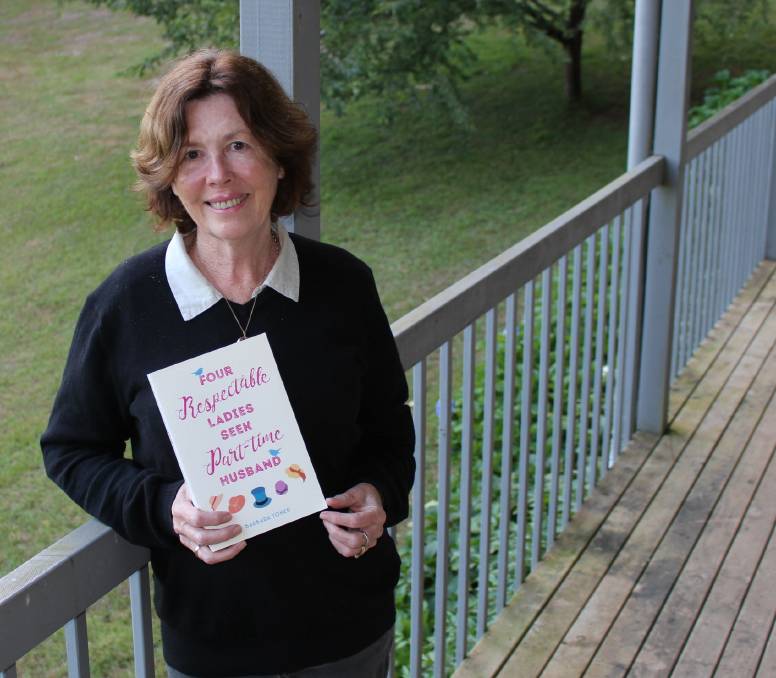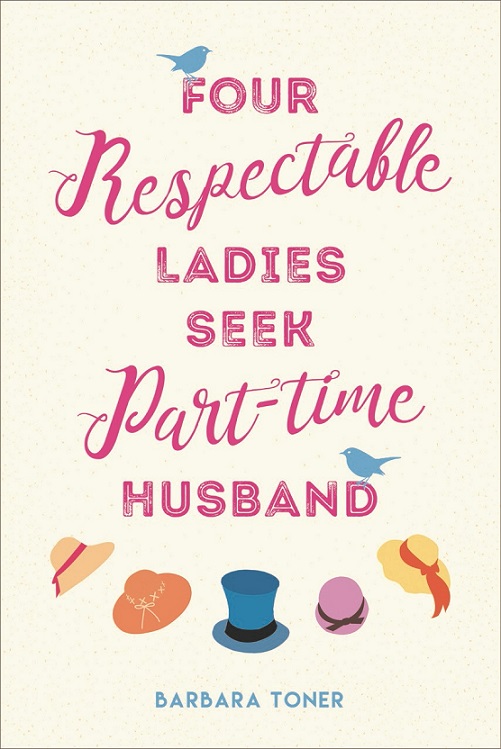
‘Four Respectable Ladies Seek Part-time Husband’ is your twelfth book. You’ve published both fiction and non-fiction. Which do you find more pleasurable to write?
I enjoy both. Each accesses a different part of your brain. Non-fiction requires meticulous research and processing of facts. Fiction requires you to dream a world into existence and make sense of it. I usually find fiction more relaxing. Having said that, when the world stops making sense and needs rearranging, it’s like unscrambling and reassembling a 1000-piece jigsaw in your head.
You’ve said that the spark for ‘Four Respectable Ladies Seek Part-time Husband’ was the title. How did this intriguing title lead you to set a story in rural New South Wales in 1919?
I was already thinking about a novel I wanted to write set in a town similar to Bombala because I love that part of NSW and because I was intrigued by how the arrival of the railway in 1921 might have affected the place. Then friends and I were discussing how our household were run and the idea of a part-time husband cropped up. He just needed a very small shove from me to end up in a rural town in 1919 because the lack of men after WW1 was just as dramatic as the arrival of the train.
Your setting is a rural town recovering from the ravages of WWI and the post-war worldwide flu epidemic. How much research did you do to conjure this time and place?
I did quite a lot of research but certainly not as much as a proper historian. I really only needed the bare bones of the time and place to meet the demands of my story and as the plot unfolded, I researched on a need to know basis.
The novel has four protagonists, all with different backgrounds, social spheres and current circumstances. They are not easy friends but form an alliance to solve their urgent problems. How important was exploring female friendship in the construction of this tale?
In the first instance, I was less concerned with female friendship than the impact of sexual attraction on gender expectations. I needed my heroines to be very different in character because their problems were different and the ways they tackled them were different. Their characters, needs and values inevitably came into conflict with each other. They had to resolve their differences if there was to be a satisfactory resolution to the story so inevitably this meant exploring female friendship.
Plotting their four unfolding tales must have involved some intricate planning. Are you a planner by nature, or more of a fly-by-the-seat-of-your pants writer?
A bit of both. I plan, I write, the plan goes off the rails because the characters behave in a way I hadn’t expected so I form another plan and so on.
Are we allowed to ask if you had a favourite character among the four?
I liked writing Louisa Worthington because she is the least likeable of the four so her behaviour can be less predictable and so more dangerous.
The novel has a gentle humorous tone but doesn’t shy away from dark subjects such as Post Traumatic Stress Disorder, blackmail, arson and the powerlessness of women at this time. What helped you weave the light tone with the dark themes of the tale?
I’ve always been more comfortable with a voice that appears not to take its subject matter too seriously. I hate it when I sound worthy or self-righteous or know-it-all. A lighter tone gives me greater freedom to make a serious point. In my own head, anyway.
You’re now working on the sequel, set ten years after the events of the novel. Did you always envisage the book to have a sequel and is that how you and your agent pitched the project to publishers?
When I found my heroines, I liked the idea of catching up with them in three books set ten years apart. I’m not sure that was how it was pitched in the first place. When I first met the publisher who subsequently bought it, she’d already read and liked the first book and seemed very pleased with the idea of more.
What was the best piece of advice you received as an emerging novelist?
To be honest. I don’t remember any. My former UK agent was very frustrated that I never wrote the same book twice when genre was definitely the go so he’d be pleased with the respectable ladies. My first publisher once asked that I give more description of setting – so I put a chest of drawers into the room where my characters were talking. Maybe I haven’t been given advice because I look like the kind of person who wouldn’t take it anyway. That’s only a bit true.
|
Barbara Toner is an acclaimed author and columnist who has written extensively about the lot of women in all its manifestations, with all its glorious and less glorious intricacies, both in fiction and non-fiction. She has three daughters and divides her time between England and the far south coast of New South Wales. ‘Four Respectable Ladies Seek Part-time Husband’ is published by Penguin Random House. |
 |
